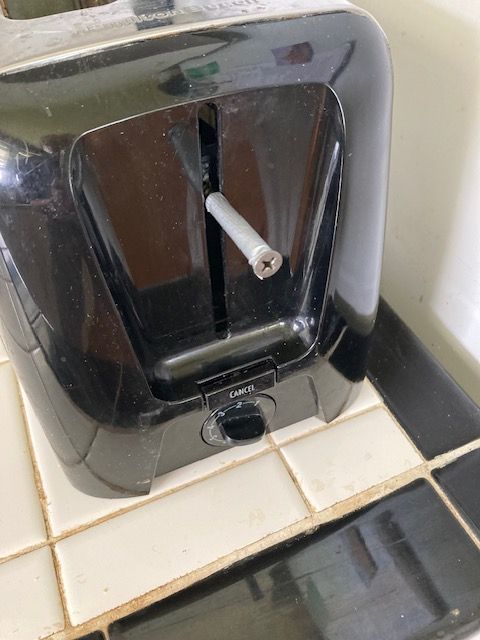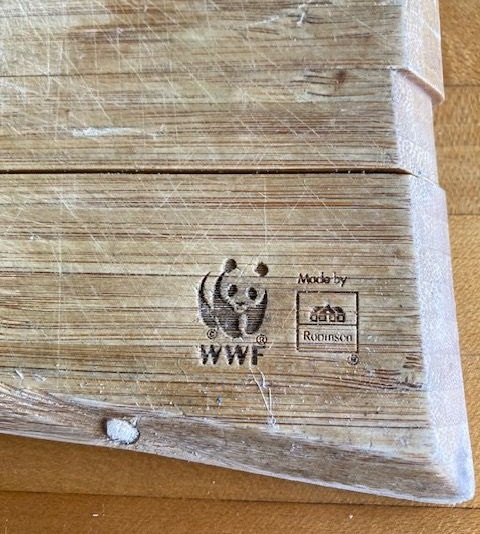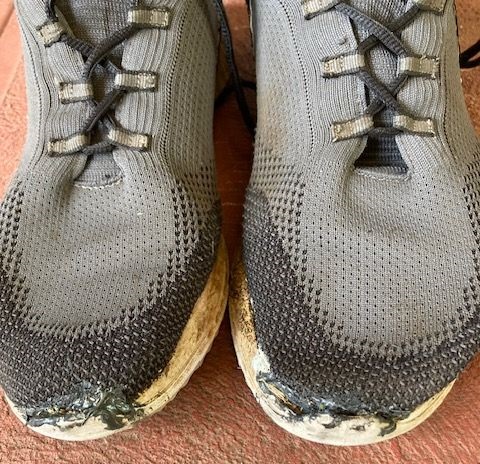Who are the biggest chumps in today's economy? One set of contenders is the corporations and marketers buying social media and search data on Anti-Consumers like myself who get their dopamine rushes from producing, not consuming and who experience extremely negative emotions when spending money on anything but the bare essentials.
Anti-Consumers are anathema to corporations selling low-quality goods and services based on the dopamine hits generated by taste, convenience, novelty and status. We're also anathema to the entire waste is growth Landfill Economy which cheers the profits generated by low-quality goods that break down, forcing consumers to replace them, and planned obsolescence, which forces consumers to replace products that are designed to fail or upgrade via forced obsolescence (software upgrades, forcing customers into monthly fees, etc.)
The Consumer Economy trains people to depend on consumption for their dopamine hits. In a less perverse economy, individuals get the positive vibes (i.e. dopamine rushes) we all need from meaningful work, a purposeful life, interacting with friends and neighbors, and the positive social role/status generated by producing something of value. Consumption is not a focus because it isn't the source of selfhood or social status.
To break this unprofitable reliance on being productive as the source of selfhood and status, The Consumer Economy infantilizes adults via dopamine addictions and an obsessive focus on products and consumer experiences as status markers.
Snacks, processed packaged food and fast food are intentionally engineered to trigger addictive dopamine hits via heavy concentrations of low-quality fats, salt and sugar. Social media is engineered to 1) first trigger insecurity about how we look, what we own, where we've been and then 2) reward narcissistic selfies with addictive dopamine-inducing "likes" that reassure us that our staged digital "self" is worthy of attention. If that isn't addictive enough, then the endless scroll of crumbs on social media feeds will addict any holdouts.
None of this infantilization (bet you can't eat just one!) works on Anti-Consumers, and so all the data and marketing is wasted on us. By all means collect all the data you want on us, and sell it to marketers, but it's a waste of money because we refuse to waste money, we don't fall for engineered addictions and we don't need a digital avatar or status signifiers to generate our selfhood.
So any marketer that wants to persuade me to buy $10 of carrots, apples and lettuce at some other outpost of Corporate America, knock yourself out. The profit margins on the $10 of raw food are so slim, it's really not worth the money spent buying the data of my searches, etc. (The receipt was $10.38: lettuce, $1.61, 2.5 pounds of apples, $5.05, and 2.3 pounds of carrots for $3.25, plus sales tax.)
Having to spend money on anything is annoying, as it leaves us less. Yes, I have to render unto Caesar (pay taxes), pay electrical and water utilities and a despicable monopoly / cartel for Internet service and other essentials such as occasional healthcare, but the goal of Anti-Consumers is to spend as little as possible.
Take healthcare:. The best way to minimize spending is to become so healthy that we don't need any medications or procedures. Occasional checkups and tests are all we need. So all the marketing trying to sell us rapaciously expensive medications is a waste.
Making all meals at home with real food and completely eliminating snacks, junk food, desserts, sugary beverages, greasy takeout food, etc., works to save money and improve health, along with some basic fitness (no gym or equipment needed, a six-foot square of floor is all we need.)
As for dopamine hits from buying new products: no thank you. It's a depressing downer to have to waste money on poorly made products. We already have enough clothing and stuff in general, and given the complete crapification of virtually every product, we repair rather than replace.
When the ensh**tified plastic handle on our name-brand toaster (bought at Walmart) snapped off, I repaired it with a long screw and some duct tape to make it comfy to push down. It took a few minutes and cost nothing.

Someone must have given us this bamboo cutting board, and judging by the WWF stamp, the original owner bought it to help that organization in some fashion. Bamboo is a very durable natural product, but if you scrimp on a few cents of adhesive, the cutting board falls apart in no time. This poorly made board broke into several pieces, which I re-assembled by drilling horizontal holes (visible in the edge) which I filled with glue-dipped bamboo chop sticks. (Note to WWF: assuming you want to "save the planet," you can start by marketing truly durable products rather than cheap, poorly made stuff that breaks into pieces with normal use.)

That Costco even sells shoes of such poor quality that the soles fall off in a few months is a travesty of a mockery of a sham, but you know that already. (Note to aliens: when you take over affairs here on Earth: please consider sending every CEO of every corporation that sells poorly made products and services to Devil's Island, along with telemarketers and those running robo-calling, spam and phishing operations. They all deserve each other.)
I mixed up some epoxy (the black stuff) and glued the soles back on the cheap shoes.

Furniture is another sector of over-priced, poorly made junk, so I built a wood frame from clear fir and we traded some of our home-grown food for a friend's help in sewing covers for cushions we bought at a discount fabric store. Our divan will outlast us, and it's what we like as opposed to what's for sale (junk). What we saved building our own furniture could be invested elsewhere.
There are voluntary Anti-Consumers like us, and increasingly, involuntary Anti-Consumers who have no choice but to slash all discretionary spending to the bone as their basic expenses consume the vast majority of their income.
Anti-Consumers lead the good life. Drawing meaning, purpose, value and selfhood from what we produce means our dopamine rushes are within our own control: we don't need to buy stuff--a temporary hit, no matter how great the expense--or compete with 5.5 billion other people for shreds of selfhood on social media.
So hey there, corporations and marketers buying social media and search data on Anti-Consumers: you're chumps. As people run out of credit and discretionary income, all the marketing in the world won't boost sales or profits, because you can't get blood from a stone--or from Anti-Consumers.
If you want a genuinely functional economy, start designing, manufacturing and selling high-quality super-durable goods and high-quality affordable services. An economy that can't manage to do so deserves to be swept into the dustbin of history as a failure.
My recent books:
Disclosure: As an Amazon Associate I earn from qualifying purchases originated via links to Amazon products on this site.
Self-Reliance in the 21st Century print $18, (Kindle $8.95, audiobook $13.08 (96 pages, 2022) Read the first chapter for free (PDF)
The Asian Heroine Who Seduced Me (Novel) print $10.95, Kindle $6.95 Read an excerpt for free (PDF)
When You Can't Go On: Burnout, Reckoning and Renewal $18 print, $8.95 Kindle ebook; audiobook Read the first section for free (PDF)
Global Crisis, National Renewal: A (Revolutionary) Grand Strategy for the United States (Kindle $9.95, print $24, audiobook) Read Chapter One for free (PDF).
A Hacker's Teleology: Sharing the Wealth of Our Shrinking Planet (Kindle $8.95, print $20, audiobook $17.46) Read the first section for free (PDF).
Will You Be Richer or Poorer?: Profit, Power, and AI in a Traumatized World
(Kindle $5, print $10, audiobook) Read the first section for free (PDF).
The Adventures of the Consulting Philosopher: The Disappearance of Drake (Novel) $4.95 Kindle, $10.95 print); read the first chapters for free (PDF)
Money and Work Unchained $6.95 Kindle, $15 print) Read the first section for free
Become a $3/month patron of my work via patreon.com.
Subscribe to my Substack for free
NOTE: Contributions/subscriptions are acknowledged in the order received. Your name and email remain confidential and will not be given to any other individual, company or agency.
|
Thank you, Kelly Z ($114), for your outrageously generous subscription to this site -- I am greatly honored by your support and readership. |
Thank you, Irving ($7/month), for your admirably generous subscription to this site -- I am greatly honored by your support and readership. |
|
|
Thank you, Jescholt ($7/month), for your monumentally generous subscription to this site -- I am greatly honored by your support and readership. |
Thank you, Michael ($70), for your superbly generous subscription to this site -- I am greatly honored by your support and readership. |
